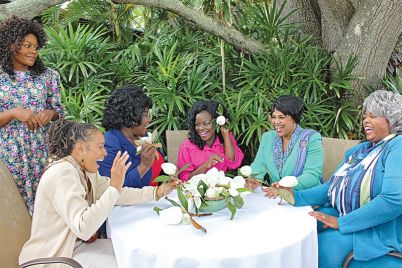Christopher Warren, Diane Lajoie, Loretta Calvin
ST. PETERSBURG – The Edible Peace Patch Project, which is a St. Pete-based nonprofit that maintains and installs educational gardens in Title I elementary schools in Pinellas County, announced three new members to its board of directors: Diane Lajoie, Loretta Calvin and Christopher Warren.

Diane Gardner Lajoie
Diane Gardner Lajoie is a retired school psychologist for Pinellas County Schools where she worked closely with students with severe emotional, behavioral or learning challenges for over 28 years. Lajoie held several leadership roles, including being the coordinator of the Safe Schools/Healthy Students Anger Management Training Team where she provided training and consultation to professional staff and law enforcement across the district.

Loretta Monroe Calvin
Loretta Monroe Calvin is the president and chief strategist for Monroe Consulting Group in Tampa, providing strategic support for small to medium businesses in the areas of organizational development, strategic planning, talent management and executive coaching. Monroe has senior business leadership experience and has served on the Board for organizations such as the Pinellas County Urban League and the United Negro College Fund.

Christopher Warren, Ph.D.
Christopher Warren, Ph.D. joins the Edible Peace Patch Project with a strong background in education, youth mentoring, community engagement and nonprofit budget management. He currently serves as the Project Coordinator for the National Institute of Health grant-funded “Figuring It Out for the Child” co-parenting initiative at USF St. Petersburg. Also, he has recently been appointed to serve as the Cultural Development and Inclusion consultant for the Juvenile Welfare Board of Pinellas County.
Additional board members include Linda Marcelli, Board Chair; Carol Mickett, Treasurer; Kristin Brett; Andrew Chittick, Ph.D.; Rob Hogeveen and Lynda Jollay.
About The Edible Peace Patch
Established in January 2009, The Edible Peace Patch Project began when a group of ambitious Eckerd College students and their Environmental Studies professor built a schoolyard garden to teach students how to grow vegetables and be active participants in their environment.
The nonprofit installs educational gardens in Title I schools and has gardens in seven schools in south St. Petersburg. The Edible Peace Patch is now at the forefront of teaching wellness, healthy eating and STEAM (science, technology, reading, engineering, arts and math) to children and their families. The mission of the Edible Peace Patch is to cultivate healthy minds and bodies through hands-on educational gardens to help grow successful lives and communities.
Post Views:
5,813











